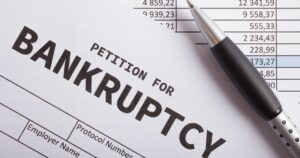Each form of bankruptcy works in its own way, with Chapters 7, 11, and 13 differing from one another substantially. One of the biggest differences is how exemptions are applied when it comes to your personal property. What are the bankruptcy exemptions for Chapter 11 and Chapter 13?
Chapter 11
Filing for Chapter 11 means that you are applying to reorganize. You are not giving up property; instead, the courts let you keep your property. You also can continue to operate your business as so, and you will renegotiate terms with creditors to remain open. That’s one difference in the bankruptcy exemptions for Chapter 11 and Chapter 13.
Chapter 13
In Chapter 13, you are reorganizing your personal debts. You hold onto your property and use your future income to make payments over a three- to five-year span to creditors. The court approves the structured payment plan, and you will pay a bankruptcy trustee until the debts are paid in full or the plan with the court is complete.
Filing Chapter 13 to Protect Assets
Even if you qualify for Chapter 7, it could be in your best interest to file for Chapter 13 if you have numerous assets that you want to protect from liquidation. For example, your assets could increase in value, such as shares in a company, real estate acquisitions, and more. Instead of selling those assets, you protect them and their financial gains in the future by filing for Chapter 13.
The Issue of the Best Interest of the Creditors Test
For the court to approve your repayment plan in Chapter 11 or Chapter 13, it must pass the “Best Interests of the Creditors” test. Essentially, you must leave creditors better off with your plan than they would have been if you filed for Chapter 7. Unsecured creditors are examined in your debt repayment plan. These creditors do not have collateral securing their loans; so, they have nothing to sell if you default.
What Property is Protected in Bankruptcy?
Some personal property is protected regardless of the type of bankruptcy you are filing. However, these are often state-specific exemptions. Therefore, it is best to speak with a bankruptcy attorney in your state to clarify which exemptions your estate qualifies for. Washington does allow residents to choose if they want the federal or state-mandated exemptions.
For the federal side, you are typically allowed a homestead exemption on the equity you have earned on your property, tools of trade, household goods, jewelry, motor vehicles, and life insurance exemptions.
Speak with a Lawyer about the Bankruptcy Exemptions for Chapter 11 and Chapter 13
It is important to realize that some assets are not protected. Therefore, having your case fully assessed by a bankruptcy attorney is the only way to help you avoid creditors, lawsuits, and more, yet still protect your future. Contact us today to schedule a no-obligation consultation.

